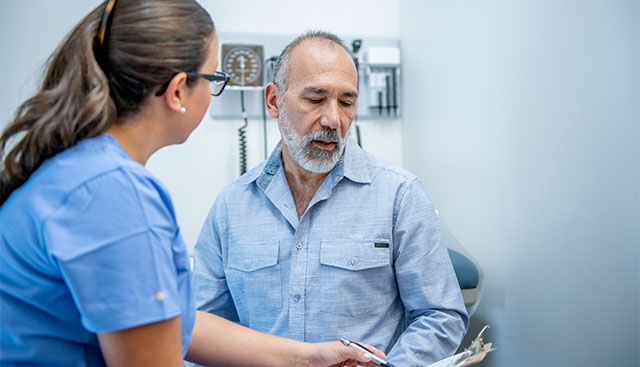
HIV and Cancer Risk
Human immunodeficiency virus (HIV) is a chronic infection that can be spread from person to person through unprotected sexual contact, the sharing of contaminated needles or infected blood products. It can also be spread from mother to baby during pregnancy, birth or breastfeeding. HIV attacks and damages the body’s infection-fighting white blood cells. Over time, it can weaken the immune system and lead to acquired immune deficiency syndrome (AIDS). The effects of HIV on the immune system can also increase the risk of other conditions, including cancer.
But can HIV cause cancer? Or can AIDS lead to cancer? The answer to both questions is no. However, researchers have confirmed that people who are infected with HIV have a higher risk of developing certain types of cancer as compared to their non-infected counterparts.
Why does HIV increase cancer risk?
HIV leaves the body susceptible to all types of infections, including certain viruses that have been conclusively linked to cancer. The viruses and cancers associated with HIV include:
- Kaposi sarcoma-associated herpesvirus (KSHV) – Can cause Kaposi sarcoma and some types of lymphoma
- Epstein-Barr virus (EBV) – Can cause non-Hodgkin lymphoma and Hodgkin lymphoma
- Human papillomaviruses (HPV) – Can cause cervical, anal, oropharyngeal, penile, vaginal and vulvar cancer
- Hepatitis B virus (HBV) and hepatitis C virus (HCV) – Can cause liver cancer
Studies show that HIV-positive people are more likely to be infected with cancer-causing viruses than the general population. Those individuals also tend to have other risk factors for cancer, such as tobacco use and excessive alcohol consumption. Finally, HIV can cause immunosuppression and widespread inflammation, both of which play a role in the development of certain types of cancer.

We are improving cancer care for HIV-positive patients
Moffitt Cancer Center is committed to providing the best possible care to all patients, including those who are living with both HIV and cancer. In other treatment settings, patients with HIV have been historically excluded from research studies, including clinical trials of innovative immunotherapies that can bolster the immune system to fight cancer. Moffitt’s renowned research team is continually investigating new treatment and prevention strategies for malignancies in people who are living with HIV, and we are currently working to open clinical trials specifically for HIV-positive patients with anal cancer, lymphoma or lung cancer.
Moffitt is also a member of the AIDS Malignancy Consortium (AMC), a clinical trials network supported by the National Cancer Institute (NCI). We proudly share the goal of the AMC, which is to bridge the existing gap between HIV-positive patients and cancer clinical trials and ultimately improve cancer care for those patients.
Would you like to learn more about HIV and cancer? Are you HIV-positive and looking for a safe place to receive cancer screenings? In either scenario, you are welcome to request an appointment with a specialist at Moffitt Cancer Center by calling 1-888-663-3488 or completing a new patient registration form online. We offer compassionate care for all, and we will connect you with a caring expert as soon as possible.
Sources:
Cancer.net: HIV/AIDS-Related Cancer
American Cancer Society: HIV and Cancer
AIDS Malignancy Consortium
Harvard University Center for AIDS Research
Cancer.net: Living with HIV? What You Need to Know about Cancer
